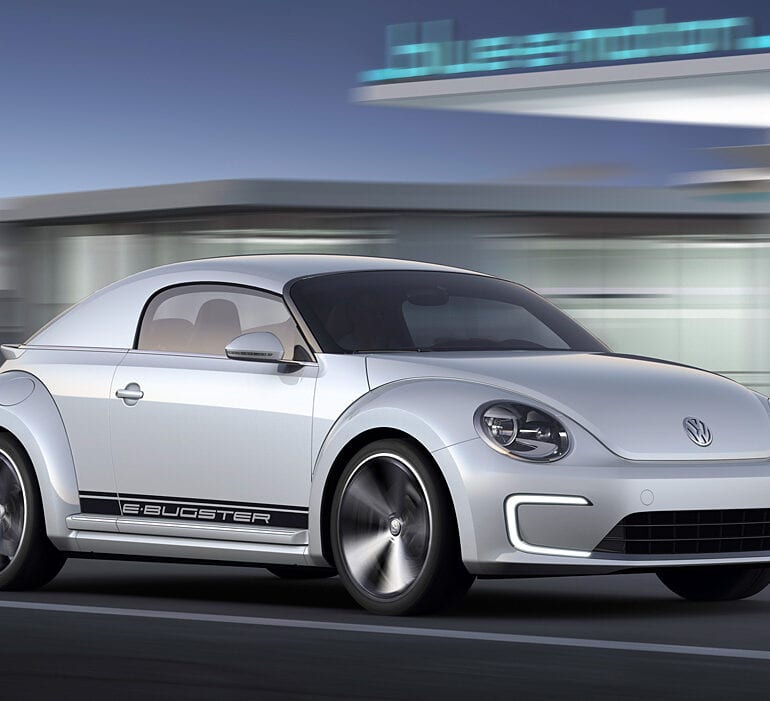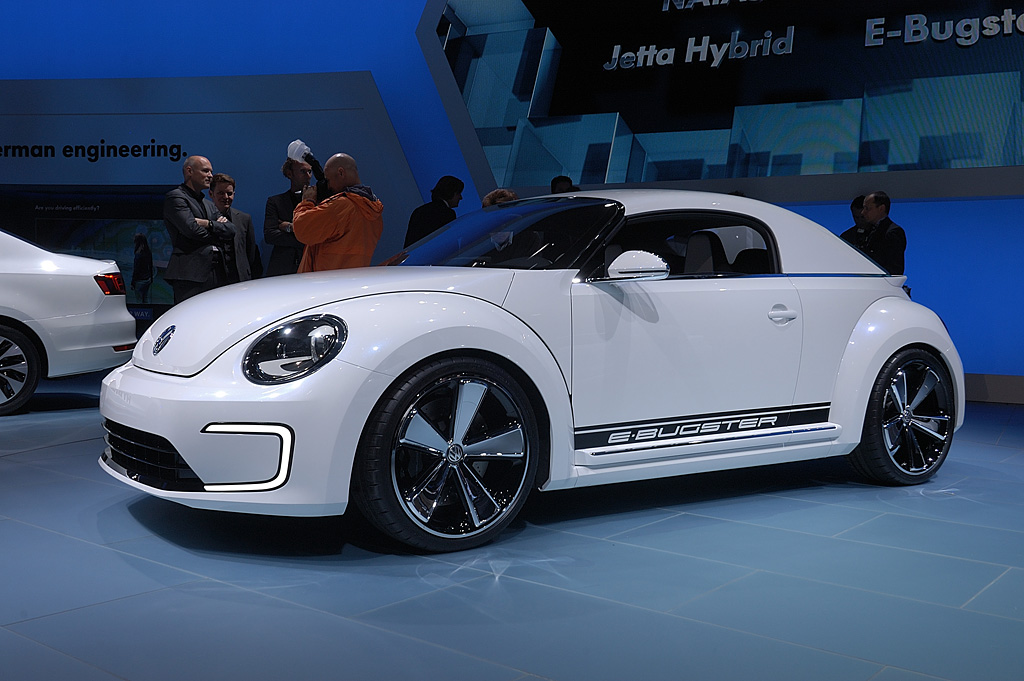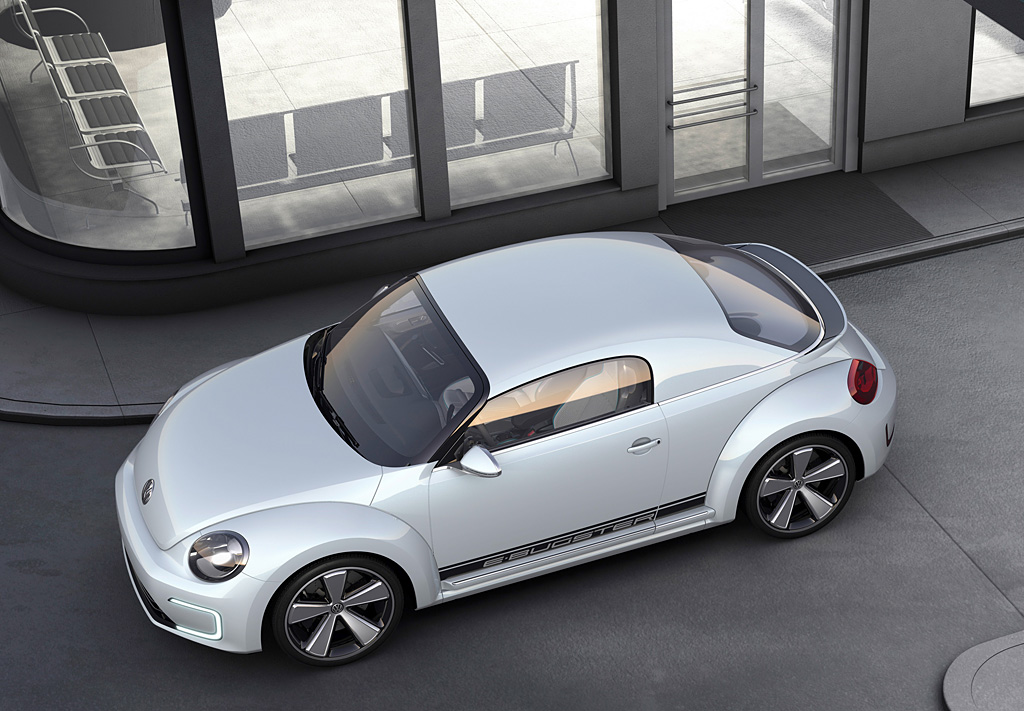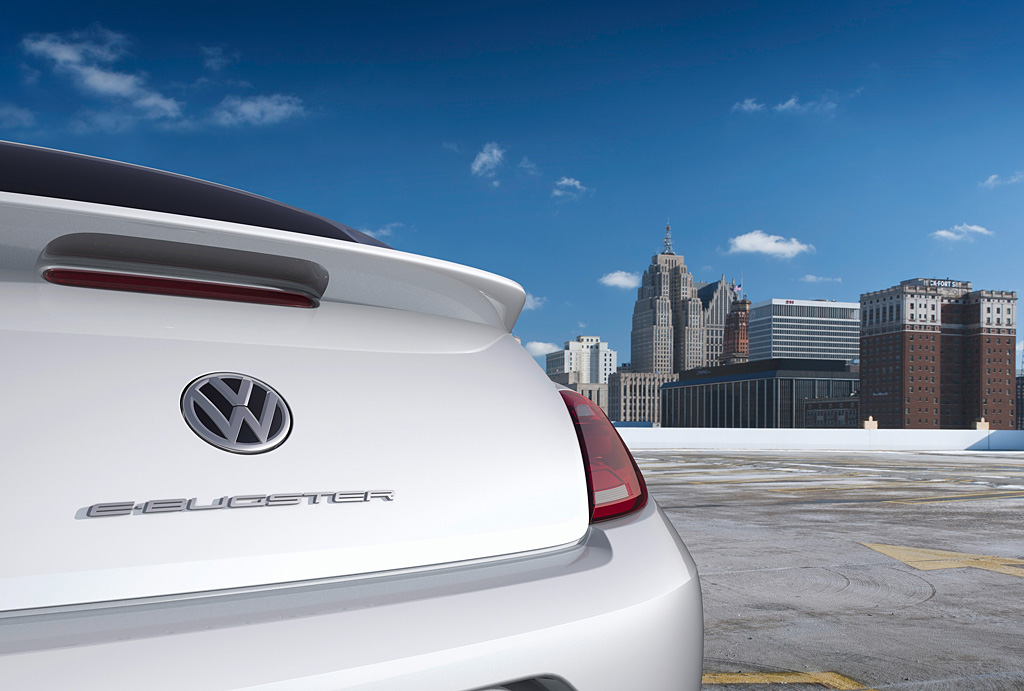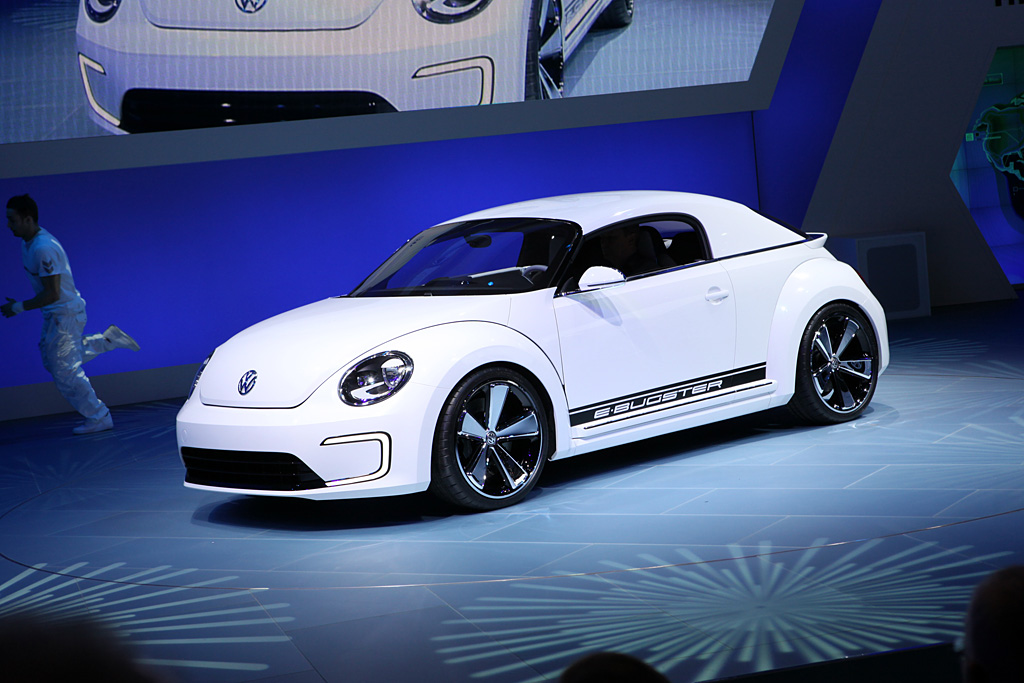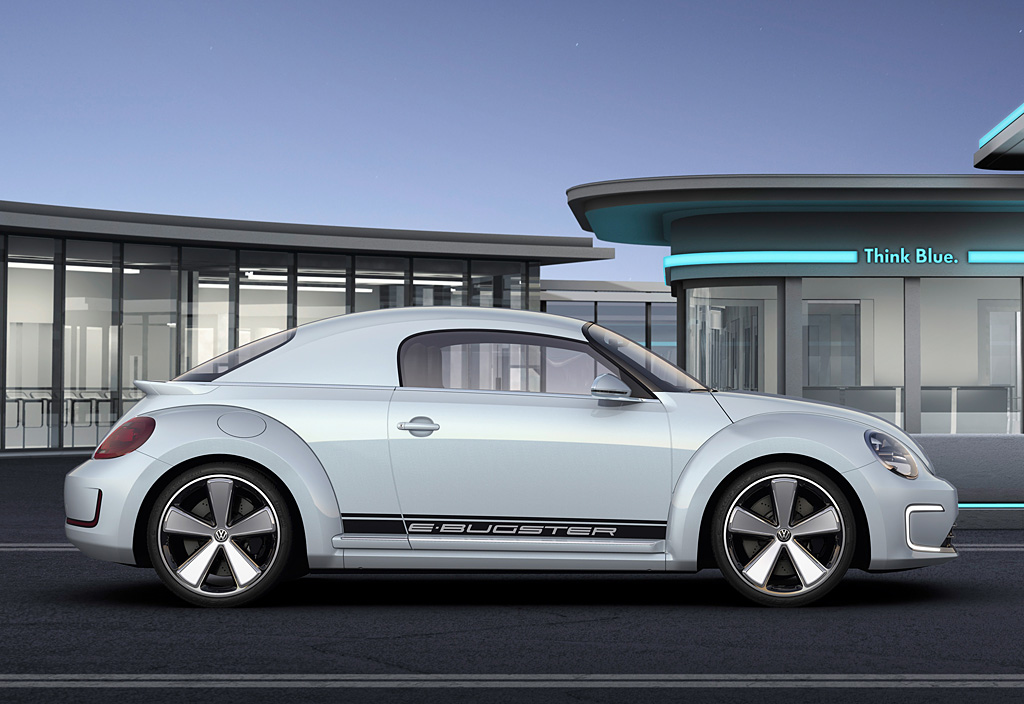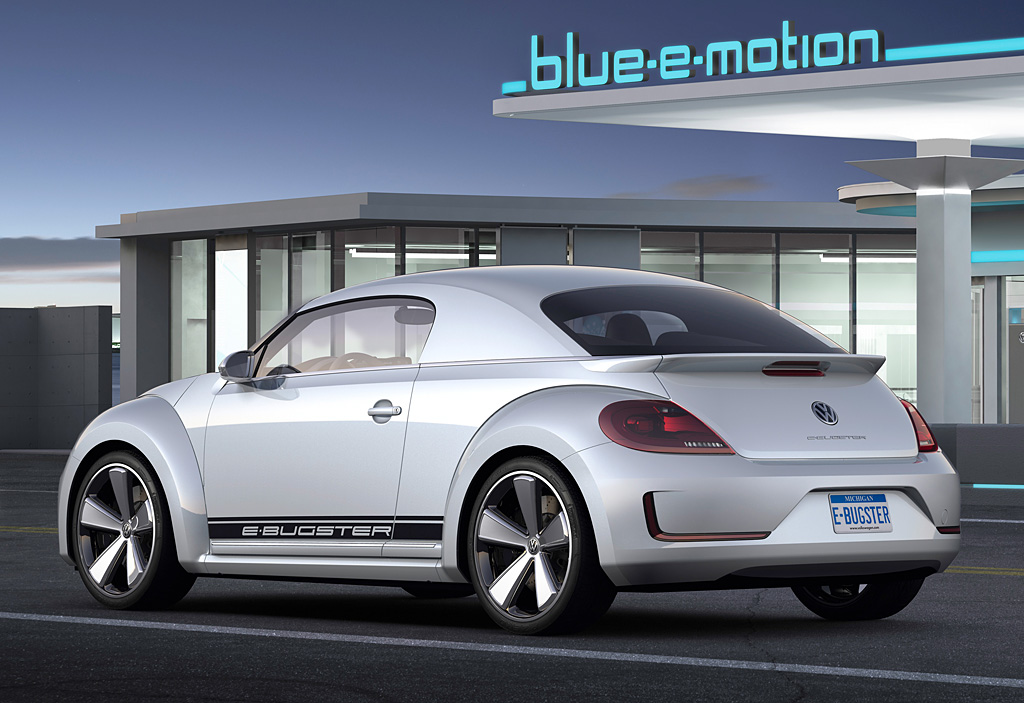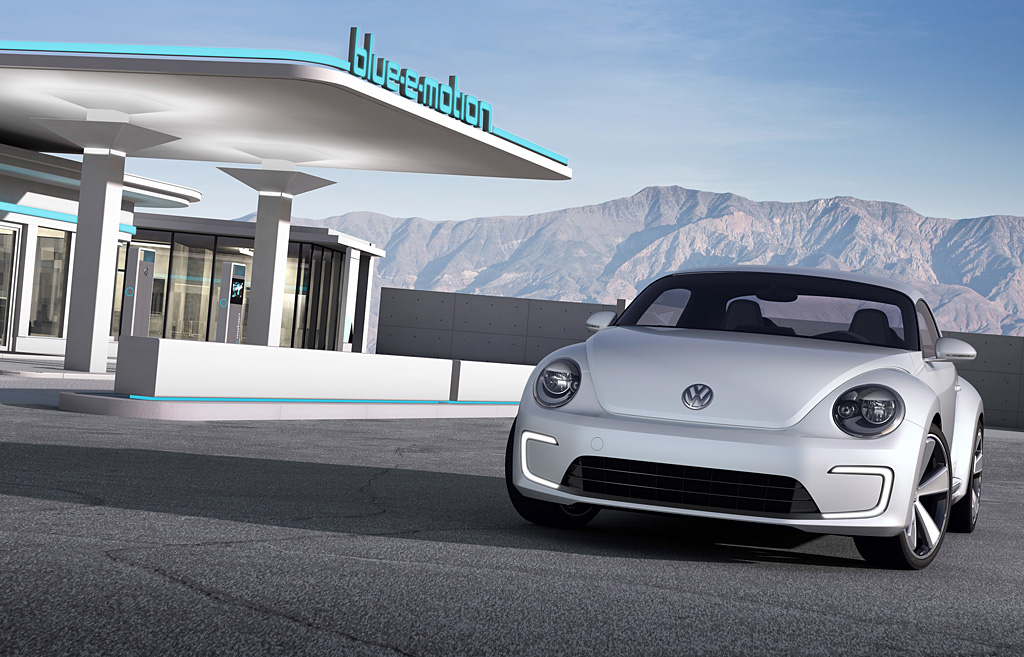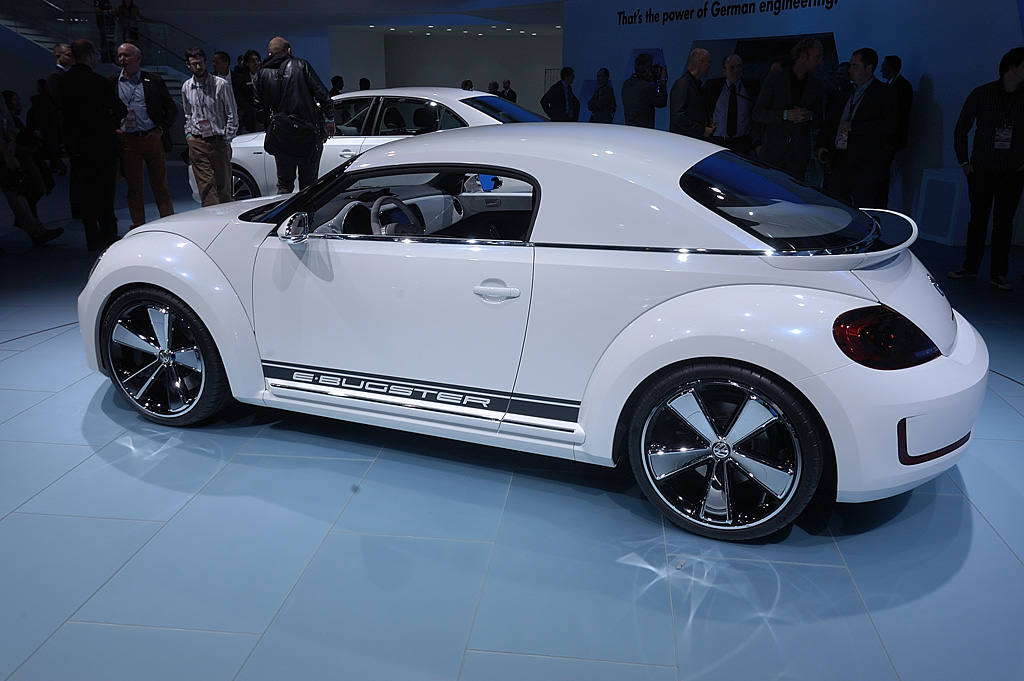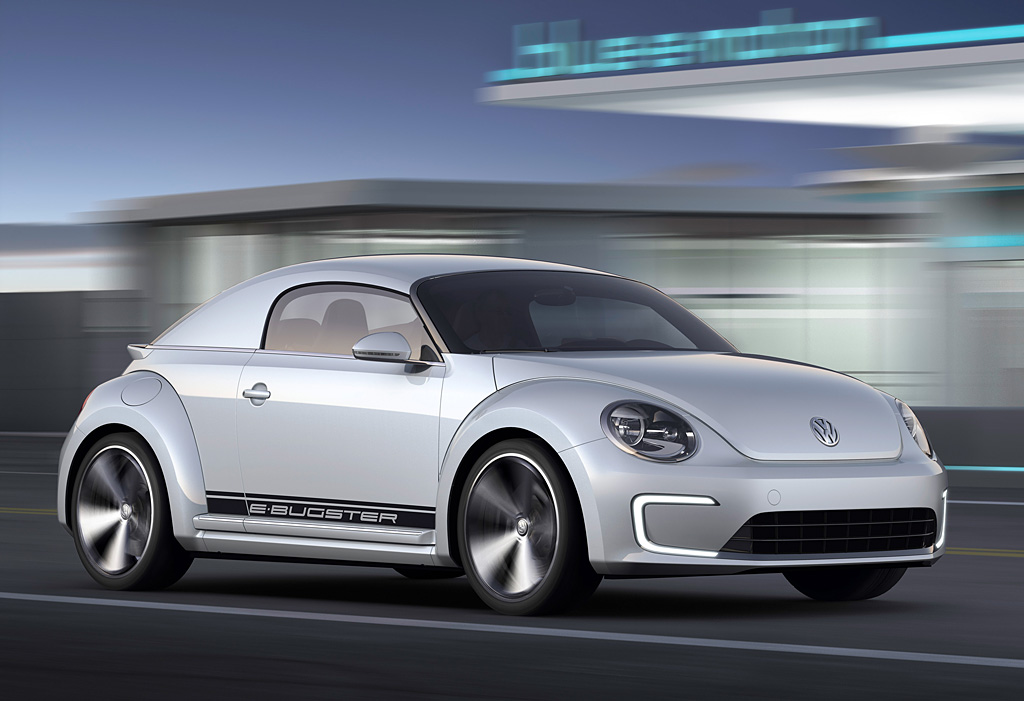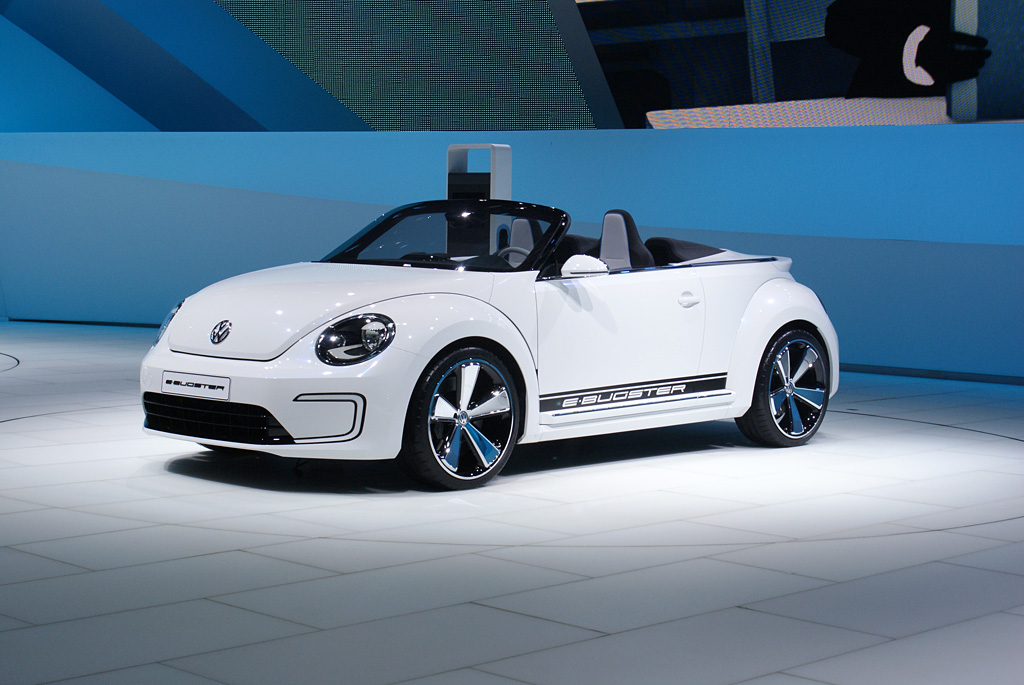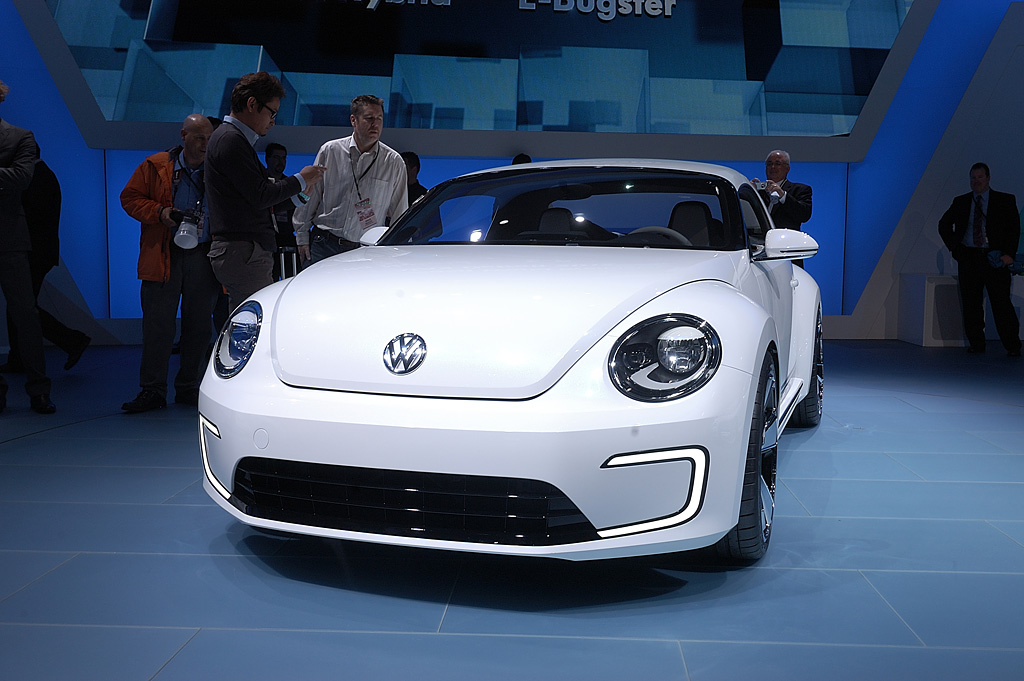2012 Volkswagen E-Bugster
The latest Beetle might be ‘more power, less flower’, but that doesn’t mean that it’s anything other than environmentally conscientious, and that’s especially the case with the E-Bugster concept, which is powered purely by electricity.
Revealed this week at the North American International Auto Show in Detroit, the
two-seat E-Bugster continues the latest Beetle’s sporty theme. An electric motor provides 85 kWh of power, which can propel it from 0 to 60 mph in 10.9 seconds, and yet offer a range of at least 110 miles from the 28.3 kWh lithium-ion batteries. Even in a country as large as America, that’s sufficient for the majority of commuters’ needs, while if the E-Bugster needs a top-up, a fast-charging function allows complete recharging in just 35 minutes.
The quick charging is possible thanks to a new Combined Charging System that was developed in co-operation with Audi, BMW, Daimler, Porsche, Ford and General Motors/Opel. This allows charging via single-phase AC sources (for example a 120-Volt US or 230-Volt European domestic outlet) or via ultra-fast DC sources at specific charging stations. To succeed, this will require the development of a uniform industry standard for sockets and plugs and also for the charge controller, so that all charging types can be handled.
Of course, the E-Bugster doesn’t charge only when plugged in: as soon as the driver’s foot leaves the accelerator pedal kinetic energy is transformed into electricity and stored in the battery. Applying the brakes increases the intensity of regeneration, a function that is indicated to the driver in the instrument panel. Other instruments include driving range and battery state indicators, and a meter that shows how much energy the driver is requesting via the accelerator pedal.
At 4,278 mm long and 1,838 mm wide, the E-Bugster is the same length as a standard Beetle but 30 mm wider, while the new roof lowers the height by around 90 mm to 1,400 mm. This helps to give the E-Bugster its more dynamic and sporty look. The low, swept-back windscreen ensures maximum visibility, as does the wide rear screen, which shows that speedster-style vehicles need not be impractical.
Both front and rear bumpers have been substantially modified from those of the production Beetle. At the front, LED daytime running lights at the outer edges of the central air intake form a C-shape on the left that is mirrored on the right – a signature feature of Volkswagen’s electric vehicle concepts. This is also true at the back, where reflectors take the place of LEDs. Beneath the flared wheel arches sit 20-inch alloy wheels that are adapted from the 18-inch ‘Twister’ alloys of the production car, with 235/35 tyres. Around the bottom edge of the side windows is a chrome strip that loops around the vehicle from A-pillar to A-pillar. From this chrome strip to the top of the E-Bugster’s hard top the height is a low 400mm.
Inside, the two-seat interior reflects the E-Bugster’s blend of high-tech and sportiness, with sports seats nestling either side of a continuous centre console, plus aluminium door handles and seatbelt guides.
Starting the E-Bugster is pure theatre: upon pressing the Start button the interior is bathed in white light, then blue light. It starts with a light pulse in the instrument cluster, from where the light emanates in a millimetre-wide strip, coursing into the doors and around the air nozzles.
If the E-Bugster’s name is familiar, it should be: it takes some inspiration from the Ragster concept that made its debut at the 2005 Detroit Show, and which itself inspired the current Beetle. The ‘E’ of the name signifies the vehicle’s electric power, and the ‘Bug’ part of the name should need no explanation.


